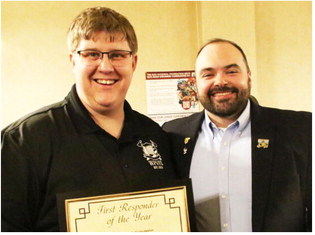Senior News
What are sweetheart (or romance) scams?
Sweetheart scammers use fake profiles on dating sites to engage other users, stir up romantic feelings, and ask for money. Sweetheart scams go by other names, too: online dating scams, confidence scams, romance scams, or catfishing. Scammers commonly target older adults, who often have retirement savings and likely live alone. And, adults 60 and older tend to be less informed about online scams in general.
Sweetheart scams rely heavily on smoke and mirrors - which makes the internet ripe for these kinds of crimes. Many scammers find their victims on dating websites and apps like Tinder but they use other platforms, too. These include messaging apps such as WhatsApp and Google Hangouts, or social media channels like Facebook.
How common are sweetheart scams? Unfortunately, very. According to the FBI’s most recent Elder Fraud Report, more than 6,700 people over age 60 lost nearly $367 million to such scams in 2023.
Why are online dating scams so common? First, there are so many online dating sites and lots of people use them. Second, the post-pandemic shift to virtual communication and meetups gives scammers a ready excuse to avoid in-person dates—which makes it easier to manipulate their victims. And finally, people have become lonelier and more vulnerable since the pandemic. This is particularly true for older adults who were more likely to isolate at home for longer.
How do sweetheart scams work?
Online dating scams may seem innocent at first—starting out with a random match on a dating app or an unexpected friend request on Facebook. The man or woman reaching out may seem kind, attentive, and genuinely interested in you. Their profile may be plastered with images of an attractive, welldressed person.
With sweetheart scammers, things tend to escalate fast. Casual conversation turns personal very quickly, and soon you’re chatting multiple times a day. The person showers you with compliments and in no time, they’re saying “I love you.”
The intensity of this relationship may make you feel confused, excited, and euphoric all at once. Eventually, you may think you’re in love with this person. Once they sense you’ve fallen for them, they start to ask you for money for various reasons. You’ve already started to care for this individual; maybe you already consider them your romantic partner. You begin to send them cash and gift cards, completely unaware that this person you trust is not who they say they are.
Signs of a sweetheart scammer Avoiding online dating scams starts with knowing what signs to look out for. The person you’re talking to may be a con artist if they:
• “Love bomb” you: Love bombing is a standard among sweetheart scammer tactics. It’s when a person lavishes you with excessive flattery, affection, and even material gifts early in the relationship in an effort to manipulate your emotions.
• Ask you to move to another app or website to speak privately.
• Claim to be a native English speaker, but their spelling, grammar, or accent tell you otherwise.
• Say they live in your home country but they’re traveling for work. For example, they may claim to be, for example, a military servicemember, a traveling physician, or an oil rig worker.
• Have an online profile that doesn’t match up with what they’ve told you, in terms of either photos or biographical details.
• Refuse to chat on video, claiming their phone’s camera doesn’t work or they don’t have a cell phone at all.
• Give dubious excuses for not being able to meet up in person, such as being in a car accident or a loved one’s death.
• Ask you to send them money for a family medical emergency - or store gift cards because they’ve lost their job. They might say they’re going to buy airline tickets to come visit you. Basically, dating scammers will use any “hardship” story that’s already worked to getting you to part with your cash.
• Ask to send you money so they can get their hands on your personal banking information.
What to do if you think you’re the victim of a sweetheart scam First, there’s no reason to feel ashamed or embarrassed. These criminals are clever, and any of us could fall prey to a sweetheart scam. Here’s what to do if you believe you’ve been conned:
• File a report with the online dating app or social media website where the scammer first contacted you.
• File a report with the Internet Crime Complaint Center (IC3).
• Report the fraud to the FTC.
• Notify your financial institutions that you may have been scammed.
• Change all your passwords immediately.
• Block the scammer immediately on all forms of communication: messaging apps, phone, text, and social media.
While reporting the scam can feel scary, sharing what happened to you can prevent it from happening to someone else. Remember, you are not alone. If you find yourself needing help, please contact Julie or Alyssa at 406-6536221 or stop in at 124 Custer St in Wolf Point.

